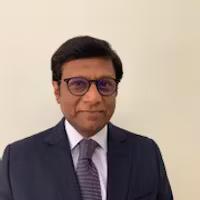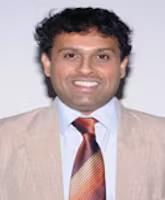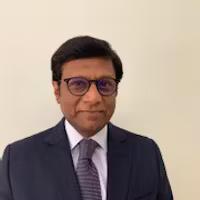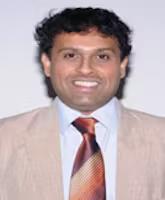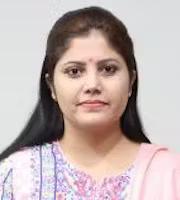The MA in International Relations, Security, and Strategy program offers a comprehensive education in global affairs, combining theoretical foundations with practical insights. Students learn from distinguished diplomats and experts while developing critical analysis skills in international politics, security studies, and strategic thinking.
Instructors:
English
Course Start Date:
1st April, 2026
Application Deadline:
28th Feb, 2026
Duration:
12-24 Months
₹ 3,00,000
Overview
The MA in International Relations, Security, and Strategy is a pioneering online program offered by O.P. Jindal Global University, India's #1 ranked private university. This innovative program integrates international relations, security studies, and strategic analysis into a comprehensive curriculum delivered by distinguished faculty including former ambassadors and policy experts.
Why MA (Master of Arts)?
The program stands out for its unique integration of international relations, security, and strategy, flexible online format, and distinguished faculty of global experts. Students benefit from a dissertation opportunity, cross-elective options in Public Policy, and practical insights from diplomats and security advisors.
What does this course have to offer?
Key Highlights
Global classroom environment
Dissertation opportunity
Flexible completion timeline
No prior IR background required
Cross-elective options
Learning from distinguished experts
QS World ranked institution
Who is this programme for?
Aspiring diplomats and foreign service professionals
Policy analysts and researchers
Journalists covering international affairs
NGO and international organization professionals
Public sector and government employees
Minimum Eligibility
Bachelor's degree in any field from recognized university
Valid ID proof (Aadhar/Passport/PAN/Voter ID for Indian students)
Passport/Government ID for international students
Who is the programme for?
The program follows a comprehensive admission process evaluating academic background and career goals. Students complete 16 courses over 24-36 months through a combination of core modules and electives. The curriculum is delivered through synchronous and asynchronous online learning with approximately 10 hours of weekly effort.
Selection process
How to apply?
Curriculum
The curriculum integrates core principles of international relations with contemporary security and strategic studies. Students explore topics ranging from geopolitics and diplomacy to strategic analysis and global security challenges. The program includes both theoretical foundations and practical applications through case studies and research projects.
There are 4 semesters in this course
The M.A. in International Relations, Security & Strategy program at O.P. Jindal Global University is structured across four terms requiring 60 credits through 12 courses. The curriculum includes core courses covering International Relations Theory, Diplomatic Practices, Intelligence and War, Foreign Policies, Terrorism and Counterterrorism, Maritime Security, Intelligence Analysis, International Law and Ethics, and Conflict Resolution. In the final term, students choose between a dissertation track (12-credit dissertation plus 3-credit research methodology course) or a non-dissertation track (three elective courses). Elective options span topics including Domestic Politics and Foreign Policy, Nuclear and Cyber Security, Climate Change, Military Conflict, China-US Relations, Multilateral Institutions, and India's role in world affairs, with cross-elective options available in Public Policy areas. Each course is worth 5 credits and involves 75 hours of learning engagement including pre-recorded videos, readings, assessments, live sessions, and discussions, designed to promote academic rigor and develop research and critical thinking skills through formative and summative assessments.
Term 1
Term 2
Term 3
Term 4
Programme Length
The program offers flexible completion options ranging from 24 to 36 months, allowing students to balance their studies with professional commitments. The curriculum is delivered through scheduled online sessions with approximately 10 hours of weekly engagement.
Whom you will learn from?
Learn from top industry experts who bring real-world experience and deep knowledge to every lesson. The instructors are dedicated to help you achieve your goals with practical insights and hands-on guidance.
Instructors
Veteran Diplomat and Expert in International Trade and Relations.
Ambassador Prof. (Dr.) Mohan Kumar has had an illustrious 36-year career in the Indian Foreign Service, culminating in his role as India’s Ambassador to France, where he significantly strengthened the Indo-French strategic partnership across various sectors, including defense, space, and energy. Prior to this, he served as Ambassador to Bahrain during the complex geopolitical landscape of the Arab Spring. Dr. Kumar is highly regarded for his expertise in international trade, having been India's lead negotiator at both the GATT and WTO, focusing on critical areas such as Intellectual Property Rights and Dispute Settlement. He has represented India at several WTO Ministerial Conferences and played a pivotal role in shaping India's relations with neighboring countries like Bangladesh and Sri Lanka as Joint Secretary in the Ministry of External Affairs. He holds an MBA from the University of Delhi and a Ph.D. from Sciences Po in Paris. Since June 2018, he has chaired the Research and Information System for Developing Countries (RIS) and authored the book Negotiation Dynamics of the WTO: An Insider’s Account.
Leading Scholar in International Affairs at Jindal Global University
Dr. Sreeram Chaulia is a Professor and Dean at the Jindal School of International Affairs, O.P. Jindal Global University, in Sonipat, India. He is a prominent opinion columnist for Indian newspapers in both Hindi and English, providing insights on world affairs, and he hosts the "Indian Diplomacy" TV show on Doordarshan, India's national broadcaster. Chaulia has authored several influential books, including International Organizations and Civilian Protection: Power, Ideas and Humanitarian Aid in Conflict Zones (2011), Politics of the Global Economic Crisis: Regulation, Responsibility and Radicalism (2013), Modi Doctrine: The Foreign Policy of India’s Prime Minister (2016), and Trumped: Emerging Powers in a Post-American World (2019). His latest work is Crunch Time: Narendra Modi’s National Security Crises. With a strong academic background, he holds a Ph.D. in Political Science and International Relations from the Maxwell School at Syracuse University and has published extensively on topics related to diplomacy, foreign policy, and international political economy.
Tuition Fee
The total program fee is INR 3,00,000, payable in four equal installments at the beginning of each semester. Students must make an initial registration payment of INR 50,000, which is adjusted against the first semester fee.
Fee Structure
Payment options
Financing options
Financial Aid
Learning Experience
Students engage through an advanced online learning platform featuring live lectures, interactive sessions, and collaborative projects. The program combines synchronous and asynchronous learning methods with regular faculty interactions and peer discussions.
University Experience
Students experience a vibrant online learning environment with access to distinguished faculty, global experts, and peers from diverse backgrounds. The program provides opportunities for virtual networking, research collaboration, and engagement with industry professionals.
Testimonials
Testimonials and success stories are a testament to the quality of this program and its impact on your career and learning journey. Be the first to help others make an informed decision by sharing your review of the course.
Loading alumni...
About the University
O.P. Jindal Global University (JGU), established in 2009, is a private deemed-to-be university located in Sonipat, Haryana, India. Founded as a philanthropic initiative by Naveen Jindal in memory of his father, O.P. Jindal, the university emphasizes a multi-disciplinary and research-oriented approach to education. JGU offers a diverse range of programs across various disciplines, including law, business, liberal arts, international affairs, and life sciences, with over 45 academic programs available.The university is recognized for its commitment to academic excellence and has been ranked as the No. 1 private university in India by multiple sources. It aims to foster a vibrant learning environment that encourages innovation, critical thinking, and global engagement among its students. With a focus on research and interdisciplinary studies, JGU seeks to address contemporary global challenges through education and scholarship.JGU's campus is designed to support an engaging student experience, featuring modern facilities and resources that enhance both academic and extracurricular activities. The university promotes a culture of inclusivity and diversity, welcoming students from various backgrounds and regions.
#601-650
QS World University Ranking
9,000
Total Enrollment
Faculties
These are the expert instructors who will be teaching you throughout the course. With a wealth of knowledge and real-world experience, they're here to guide, inspire, and support you every step of the way. Get to know the people who will help you reach your learning goals and make the most of your journey.
Instructors
Emerging Scholar in Social Media Analytics and IT at IIM Lucknow.
Prof. Ambica Ghai is currently pursuing her PhD in Management with a specialization in IT and Systems at IIM Lucknow. Her research focuses on social media listening and monitoring, particularly examining the interplay between textual data and image analytics. This involves analyzing how images and text together can provide insights into consumer behavior and preferences.
Scholar in Organizational Behavior and HRM at Jindal Global Business School.
Anshu Sharma is an Associate Professor in the Organizational Behavior and Human Resource Management (OB-HRM) area at Jindal Global Business School. She also serves as the Assistant Dean for the MBA-DFB Program and is the Executive Director for the Centre of Responsible Management. A Fellow of MDI, Gurgaon, her doctoral research, titled "Determinants of Organizational Learning Capability in the Digital Age: Role of Enterprise Social Media, Social Capital, and Informal Learning," received the Highly Commended Award at the Emerald Outstanding Doctoral Research Awards in 2017.
Career services
O.P. Jindal Global University offers robust career services aimed at preparing students for successful careers after graduation. The Career Development Office provides comprehensive support through personalized counseling sessions, workshops on resume writing and interview preparation, and access to job fairs featuring top employers from diverse industries.The university emphasizes experiential learning by facilitating internships that allow students to gain practical experience while studying. These opportunities not only enhance students' resumes but also help them build valuable professional networks that can aid in job placements.JGU maintains partnerships with numerous organizations to provide students with internship opportunities aligned with their career goals. The Career Development Office also organizes networking events where students can connect with alumni and industry professionals for mentorship and guidance.Additionally, the university offers online resources that include job listings, career advice articles, and tools for professional development. This comprehensive approach ensures that students are well-equipped to navigate the job market successfully upon graduation.
Top Recruiters


-1726737929102.svg)
-1726738183249.svg)
Course Start Date:
1st April, 2026
Application Deadline:
28th Feb, 2026
Duration:
12-24 Months
₹ 3,00,000
Frequently asked questions
Below are some of the most commonly asked questions about this course. We aim to provide clear and concise answers to help you better understand the course content, structure, and any other relevant information. If you have any additional questions or if your question is not listed here, please don't hesitate to reach out to our support team for further assistance.

